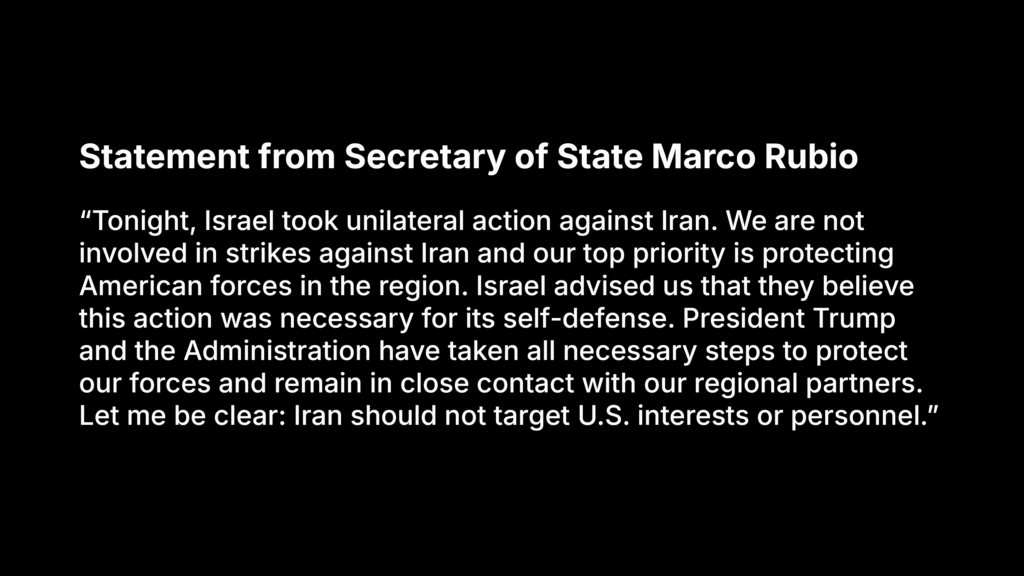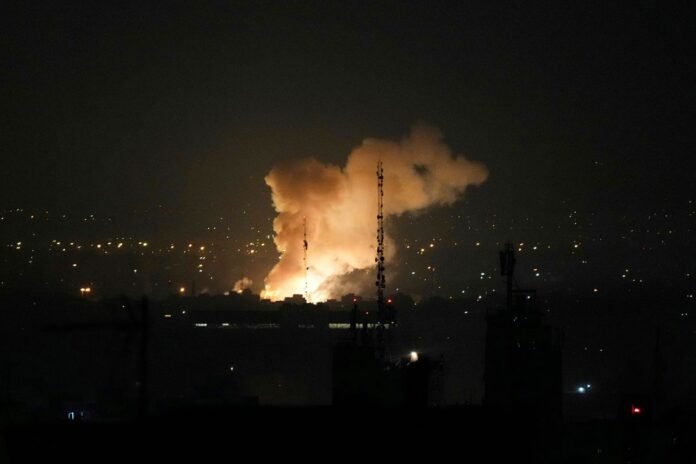Israel began a major airstrike campaign named Operation Rising Lion at around 3 a.m. local time this morning, targeting Iran’s nuclear sites, missile facilities, and senior military leaders.
Explosions shook Tehran, Natanz, Isfahan, Arak, and Khondab. Dozens of Israeli warplanes participated in the strikes and coordinated covert sabotage by Mossad to weaken Iran’s missile and air-defence infrastructure.
Civilian air traffic was halted, with Tehran’s main airport closing. Iranian air defences engaged the threat as fires and damage followed.
Iranian state reports confirmed the deaths of major figures. Revolutionary Guard Corps leader Hossein Salami and military chief Mohammad Bagheri were killed, alongside Gholam Ali Rashid.
Two prominent nuclear scientists, Fereydoon Abbasi-Davani and Mohammad Mehdi Tehranchi, also died in the operation.
Israeli Prime Minister Netanyahu declared that Iran had amassed enough enriched uranium for nine nuclear bombs and was nearing weaponisation. “We cannot leave these threats to the next generation,” he said. “If we don’t act now, there may not be a next generation.”
Regional Reaction and Retaliation
Iran immediately launched over 100 drones toward Israel. Most were intercepted; airspace closures affected Iraq, Jordan, and the UAE. Iran’s Supreme Leader predicted “severe punishment” for Israel’s actions.
UN, NATO, and various world leaders urged restraint to avoid further escalation. Concern also arose about a potential rise in global oil prices. Israel has imposed a nationwide emergency, grounding flights and closing schools while preparing for possible Iranian counterattacks.
The United States confirmed it played no role in the strikes.
Secretary of State Rubio stated, “We are not involved … Israel advised us that they believe this was necessary for its self‑defence.”

U.S. forces across the Middle East remain on protective alert, with diplomatic personnel withdrawn from regional posts.
Reportedly, President Trump, who earlier appealed for diplomacy, convened a National Security Council meeting today to manage fallout and reaffirm U.S. commitment to force protection even as it preserves diplomatic channels.
A Turning Point in Middle East Dynamics
The multi-day military campaign is the most significant Israeli strike on Iran since the Iran-Iraq war.
By attacking nuclear, military, and moral leadership, Israel staged a strategic offensive to neutralise perceived existential threats. However, analysts warn of escalating conflict risks and regional instability.
With U.S.-Iran diplomatic efforts now under strain, global actors must grapple with a rapidly shifting Middle Eastern landscape.
Rate, Like 👍, Comment, share this article and Follow us on our social media handles.






